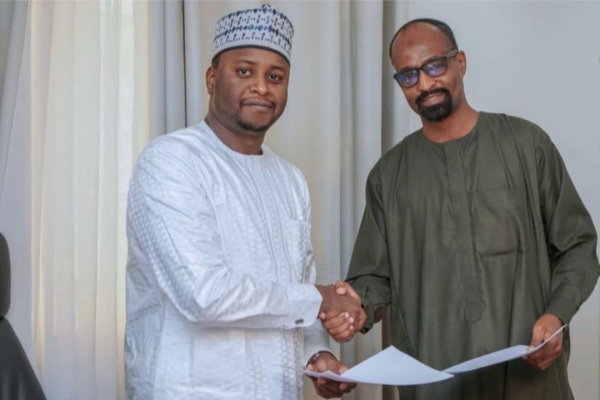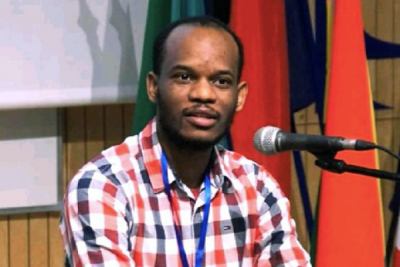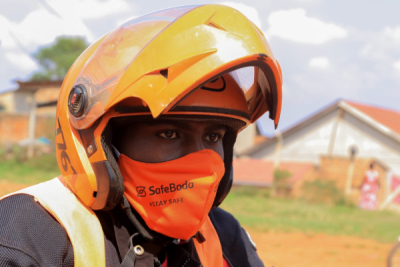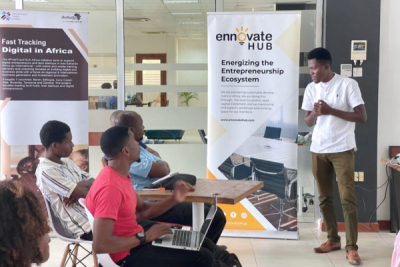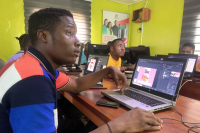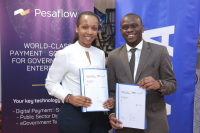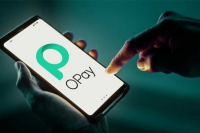Technipole Sup Valor is a dynamic hub for entrepreneurial innovation. Focused on socio-economic development, this incubator distinguishes itself by identifying and supporting innovative project leaders.
Technipole Sup Valor is a business incubator founded in 2010 by the National Advanced School of Engineering of Yaounde (NASEY) in Cameroon. Its main mission is "to contribute to the socio-economic development of the country, through the identification and support of young holders of innovative economic projects or those with high growth potential," as stated on its website.
The incubator provides comprehensive support to startups, encompassing entrepreneurship training, consulting and coaching services, financing, and workspace. Incubated companies benefit from dedicated office space, a meeting room, a computer lab with internet access, and access to qualified experts for training and guidance. Technipole Sup Valor also organizes networking events and market research activities to empower founders.
Further bolstering its commitment to entrepreneurial development, the incubator created Technipedia, a dedicated website offering project ideas and valuable information to aspiring entrepreneurs.
Companies receive up to two years of tailored support, including three months within the physical incubator and a maximum of 21 months with ongoing online and remote guidance. While Technipole Sup Valor has a primary focus on the digital sector, its expertise extends to supporting ventures in other fields as well. Its successes include notable Cameroonian startups like Arthur Zang's Himore Medical, Alain Nteff's GiftedMom, and Arielle Kitio's Caysti.
Melchior Koba
Across Africa, concerns over slowing economic growth and over-reliance on commodities are driving a renewed focus on diversification. Governments are recognizing the urgency of implementing supportive policies, training programs, and financing initiatives to catalyze innovation and unlock new avenues for growth.
Chad Innovation Hub (CIH), a youth entrepreneurship incubator, and the National Agency for Investments and Exports (ANIE) have formalized a partnership aimed at fostering innovation, entrepreneurship, and sustainable development in Chad.
The strategic alliance, announced on Tuesday, January 23, seeks to enhance Chad's entrepreneurial ecosystem by promoting open innovation and stimulating projects in digital technology, the circular economy, corporate social responsibility, and green business models. The partnership will also focus on empowering women and young people, particularly in rural areas, ANIE said in a statement.
The memorandum of understanding between ANIE and CIH includes provisions for the effective implementation of the Sustainable Development Goals (SDGs) and the establishment of a close collaborative relationship to mutually promote the private sector and diversify the economy.
The collaboration aligns with the government's policy to support entrepreneurship in Chad, which recently led to the creation of an FCFA30 billion ($49.6 million) fund. The fund is designed to provide credit guarantees for entrepreneurs and finance key projects in sectors such as agriculture, livestock, and new technologies.
The agreement signals the start of a promising alliance that positions Chad on the international innovation stage. CIH, an award-winning organization, strengthens the belief that innovation and entrepreneurship are key drivers for a prosperous and sustainable future for Chad.
Samira Njoya
Dr. Ifriky Tadadjeu is carving a pioneering path in the nascent space industry of Cameroon. As founder and CEO of Nanosatellite Missions Design (NMD), he translates his visionary ideas into practical solutions, designing innovative space missions and systems that contribute to the country's technological advancement.
Dr. Ifriky Tadadjeu (photo) is leading the way in developing Cameroon's space program through his company, Nanosatellite Missions Design (NMD). Founded in 2021, NMD specializes in designing innovative space missions and systems using nanosatellites and miniature satellites offering cost-effective platforms for research and data collection.
NMD's mission goes beyond technological advancements. The company also plays a crucial role in building a sustainable space ecosystem in Cameroon. Its team of experts, boasting over 20 years of experience in fields like project management, robotics, and artificial intelligence, provides training and consultancy services across various sectors.
These sectors include agriculture, environmental management, civil administration, defense, finance, education, and research. NMD's courses cater to different expertise levels, empowering individuals to acquire skills for future roles in space agencies and missions.
Dr. Tadadjeu's entrepreneurial spirit extends beyond NMD. He is also the owner of Ifriky Ltd, established in 2014. This company houses projects like TellMee, a customer evaluation platform, and MyLogz, providing identity cards and digital logbooks.
Dr. Tadadjeu holds a bachelor's degree in physics (2007) from the University of Buea, a master's degree in satellite systems engineering (2012) from ESIEE Paris and a PhD in electrical engineering (2016) from Cape Peninsula University of Technology.
Before venturing into entrepreneurship, Dr. Tadadjeu gained valuable experience through various positions. He served as the national point of contact for the Space Generation Advisory Council (2013-2015), supporting the UN Programme on Space Applications. He then transitioned to post-doctoral research at Cape Peninsula University of Technology (2016) and later joined the Centre Spatial Universitaire de Montpellier as a Space Mission Analyst (2018-2020).
Melchior Koba
Ugandan e-mobility startup Safeboda is set to return to the Kenyan market in February 2024, two years after suspending operations there. The announcement was made on Monday, January 22, through a post on the X social network. Details regarding the company's Kenyan relaunch remain scarce, with the post only confirming the February timeframe and Nairobi as the initial operating city.
Faced with cumbersome identification procedures and fragmented data, Madagascar is embarking on digital identification. The initiative is aimed at streamlining services, bolstering transparency, and optimizing data management.
Madagascar's Ministry of Digital Development, Digital Transformation, Posts and Telecommunications (MNDPT) announced on Friday, January 19, the imminent launch of a digital national identity card project for citizens aged 15 and above. Minister Tahina Razafindramalo (photo, left) told journalists at a press conference that production is set to begin as early as June in several regions.
"This marks a significant step for Madagascar as it embarks on modernizing its identity management system, similar to recent efforts in countries like Tunisia and Greece," remarked Razafindramalo.
The project, financed to the tune of $140 million by the World Bank, encompasses biometric enrolment, data collection, digital infrastructure development, and card production. It aligns with the Malagasy government's Digital Strategic Plan 2023-2028, seeking to streamline administration and centralize data for efficient population registration and census.
UNICEF estimates that roughly 2.5 million children under 18 and 1 million adults currently lack official identification in Madagascar, often due to bureaucratic hurdles or administrative deficiencies. These challenges leave them "administratively invisible," hindering access to essential services and rights.
The implementation of the digital national identity card project is set to revolutionize the way citizens interact with the government and access essential services. The project will provide each target citizen with a unique identifier and biometric ID card, preventing duplicate identity.
Samira Njoya
To help entrepreneurs grow their startups into successful, scalable businesses, Ennovate Ventures offers incubation programs, a venture studio, and financing opportunities.
Ennovate Ventures is a pan-African venture capital firm and micro-fund that supports and finances African innovators. Based in Tanzania, it helps emerging technology companies integrate disruptive innovation and sustainability into their business operations.
Launched in 2018, Ennovate Ventures was founded by Francis Omorojie, an entrepreneur and petroleum engineer who is a venture capital partner. It aims to help its customers achieve optimal business performance.
Ennovate Ventures' mission goes beyond mere financial backing. Through its venture-building arm, Ennovate Hub, the company cultivates a pipeline of promising startups through incubation programs. These programs emphasize market-driven, data-centric business models that prioritize scalability and value creation.
Ennovate Hub spearheads initiatives like the Ennovate UniSpark Project, a week-long design sprint that brings together university innovators to collaborate on projects. Additionally, programs like Girls TechSpire and Digify-Tech empower young women and Tanzanian youth with digital skills and access to online work opportunities.
Ennovate Ventures also has a Venture Studio, which offers entrepreneurs the opportunity to co-found and run high-growth technology startups. It also offers a digital platform to accelerate investment transactions between startups and investors. Called VentureRoom, the latter does all the initial work of identifying the most promising startups, carrying out due diligence, and listing startups according to sector, stage of maturity, location, and funding round.
Since its inception, the company has supported over 1,000 digital entrepreneurs and invested $100,000 in early-stage startups in East Africa. With over 20 partners, it has made 11 investments in high-growth technologies. Notable portfolio companies include Farm Noksi, an agricultural e-commerce platform, Gigs Afrika, a pan-African gig economy marketplace, and Kikundi, a fintech app for savings, loans, and investment management.
Melchior Koba
Orange Botswana's CEO reveals the major achievements of the telecoms company, which is celebrating 25 years of presence on the local market. It also talks about its next major ambitions in a context of digital economy.
We Are Tech : You have been running Orange Botswana for more than two years. How do you view the local telecoms market in terms of digital appetite ?
Néné Maïga : The local telecommunications industry in Botswana is an ever-evolving market-it certainly keeps you on your feet as a leader! A great reason for this is its growth has been prioritized by the Government and all its key players including Orange Botswana. We have worked very well with our Ministry of Communications, Knowledge, and Technology, to ensure that our sector is sustainable.
WAT: How Orange has positioned itself in this context ?
NM: Orange Botswana prides itself in being the “first-to-market leader” in our industry. It was just 5 years ago, in 2018, that we introduced 4G technology, following a similar pattern with the introductions of 3G and 2G. In 2022, we introduced 5G technology, positioning Botswana as a prominent player in the mobile communications sector. This ushered in 5G-enabled partnerships that brought forth innovations in e-health, connected vehicles and cities, real-time gaming, and smart homes. Notably, the collaboration with MRI Botswana, a medical service provider, resulted in the creation of a connected ambulance, enabling doctors to guide paramedics through life-saving procedures in route to hospitals — a feat attributed to the capabilities of 5G technology.
New innovations in digital education, e-health, m-agriculture will consolidate the positioning of Orange Botswana as a multi-service operator. And this positioning will bring a lot of opportunities for local start-ups because our plan is to create an ecosystem which enables them to develop solutions addressing Botswana’s needs.
WAT: Beyond broadband connectivity, what are the other areas where Orange has had a strong impact in Botswana. How does this materialize concretely?
NM: For us, our work with start-ups as well as our digital school programs demonstrates how our strategic partnerships can accelerate the realization of efficiency in implementing the economic diversification drive and closing the gender and digital gap.
Our annual Orange Social Venture Prize Competition provides us with a platform to partner with start-ups that aim to bring innovative solutions that leverage on information and communications technologies (ICT) and future growth sectors in the country. Over the past years, we have supported and partnered with innovators that won the competition such as creators of the Mohiri Job Alert, Brastone of Mpotsa & mAgric and Connexus of Atlega Mobile Education. Recently, the 2023 winners of the initiative, Aga Sure Mobile App took home prize money to jumpstart a micro-insurance platform that will provide access to financial services for unserved and underserved economic communities.
Through our CSR arm, Orange Foundation, we have to date launched the Orange Digital Schools Program across 76 primary schools and upskilled hundreds of women with digital entrepreneurial skills across 8 Women’s Digital Centers. I’d also highlight, our state of the art, digital technology hub, the Orange Digital Center (ODC) launched in November 2022 in Gaborone. The ODC plays a pivotal role in delivering vital ICT training, upskilling, and supporting the creation of innovative digital solutions to enhance employability amongst the youth. In July of this year, 150 students graduated in scratch coding, digital embroidery, and 3D printing from this center.
WAT: Orange Botswana is celebrating its 25th anniversary. What does this milestone mean for the company ?
NM: Twenty-five years ago, Orange Botswana embarked on a mission to connect people, to bridge distances, and to transform lives through the power of communication. It is a powerful thing to realize that our clients and customers trust us with something as sacred as their ability to communicate with those that matter most to them. Whether it is personal or business, voice, or data, they trust us to make this most basic need to feel closer to their family, friends and business partners a daily reality. I am proud to say that Orange Botswana has been a key player in the last 25 years bringing people closer to cutting-edge innovations and digital inclusion. We owe our success to our amazing customers-their unwavering loyalty will certainly propel us into the next 25 years.
WAT: How is Orange planning for Botswana in the coming years ?
NM: Looking ahead, the future is bright for Orange Botswana. There is much to be done further and our passion, purpose and ambition will guide us. We stand at the cusp of a new era, where technology continues to reshape the way, we live and work. As a company, we are committed to staying at the forefront of these advancements, ensuring that we not only meet but exceed the expectations of our customers and clients. We look forward to digitizing the customer experience through platforms such as the Max it App, contributing to the growth of the country’s ICT infrastructure through our Tier III certified Data Center, and witness Orange Money make strides in the mobile money sector.
WAT: You recently won the «Female Innovator of the Year» prize at the Africa Tech Festival at November 2023 in Cape Town, why is this prize special for you ?
NM: I am deeply honored to have been recognized as the 2023 Female Innovator of the Year at the Africa Tech Festival. I believe this reward is a recognition of my contribution to the telecommunications, technology and media sectors in various countries including Cameroon, Mali, Morocco and, of course, Botswana. This is also a testament to the incredible work being done at Orange Botswana, and I share this award with our dedicated team who continue to drive innovation and excellence in our country and industry.
WAT: What meaning do you think this award has for women who demonstrate extraordinary leadership in the ICT sector ?
NM: This award has great meaning for African women in the continent’s tech industry because it validates our contribution to an industry, we have deep respect and passion for. As ICT leaders on the continent, we also understand the difference access to the innovations and technologies we offer has for Africans. I like to cite mobile and internet penetration as well as the rise of mobile money as prime examples of how valuable these ICT solutions can be to our customers’ everyday lives. In Botswana, a street vendor or small business owner now has a safe, convenient, and easily accessible tool to receive, send and save their money with Orange Money-which was not available to them 20 years ago.
So, as African leaders our success has even more meaning when it allows us to give back to our communities, country, and continent in some way.
Through its training programs, advice, and technological solutions, Innovations Hub Liberia helps individuals achieve their goals and enables businesses to take the next step in their development process.
Innovations Hub Liberia (iHub Liberia) is a company dedicated to providing first-class training and services to help individuals and institutions thrive in the digital age. Founded in 2019, it is led by computer scientist Philip Bargin, who serves as its executive director.
The company is a social entrepreneurship training and consulting company that aims to improve the digital landscape in Liberia and Africa. To achieve its goals, the company offers corporate and vocational training, enabling individuals to acquire the skills they need to launch their careers in high-growth fields such as information technology and data collection.
"As we tend to ensure that participants have a simple and full learning community where they can share thoughts, ask questions, and challenge themselves with new tools learned within the training, we use WhatsApp as a platform for interactions and then other meeting platforms like Google Meets, Zoom, and Microsoft Teams for live classes and sessions," reads the company's website.
Innovations Hub Liberia often offers dedicated events to raise awareness of the business benefits of technology and connect students with industry experts... It organizes corporate seminars, boot camps, and information and communication technology (ICT) consulting.
In addition, iHub Liberia provides graphic design, branding, website design and redesign, computer networking, database development, and IT support services.
Melchior Koba
Global payments giant Visa announced a strategic partnership with Kenyan fintech company Pesaflow to transform and enhance digital payments within the Kenyan government. The collaboration aims to establish seamless and user-friendly digital payment platforms, incorporating virtual cards and secure gateway services for transparent and reliable transactions.
The prominent Nigerian fintech company is expanding its payment gateway by aligning with leading payment solutions providers, including a recent collaboration with an African unicorn at the start of 2024. This partnership represents a significant step towards increasing the reach and functionality of its platform.
Nigerian fintech leader Interswitch Group announced on Sunday the integration of OPay Wallet into its Interswitch Payment Gateway (IPG), expanding payment options for users and merchants. This move further strengthens Interswitch's position as a digital payments pioneer in Africa.
The integration allows IPG users to pay directly through their OPay Wallets alongside existing options like bank cards, Quickteller, QR codes, and USSD. "Through our latest collaboration with OPay, we are excited to introduce a new dimension of payment convenience to users and merchants. This partnership reflects our dedication to introducing innovations that enhance the digital payment experience, and we are eager to witness the positive impact it will have on the entire payment ecosystem," said Muyiwa Asagba, Interswitch Managing Director of Digital Commerce & Merchant Acquiring (Paymate).
Having achieved unicorn status in 2019 after a 20% stake acquisition by Visa, Interswitch has established itself as a leading African fintech. Last September, it partnered with Google to integrate Google Pay into IPG, further diversifying its offering. This focus on user convenience aligns with the company's mission to simplify everyday life.
OPay, meanwhile, reached unicorn status in 2021 following a $400 million funding round. The fintech has since become a major player in African mobile payments. This partnership exemplifies the rapid growth of the continent's fintech sector, the most attractive for investors. Notably, among Africa's unicorns, only Jumia operates in e-commerce, highlighting the dominance of fintech in the region.
Adoni Conrad Quenum
More...
Since 2020, African technology entrepreneurs have been struggling to access funds. The growth recorded since 2018 has been slowing down and investors are becoming more cautious.
African technology startups secured $1.8 billion in funding in 2023, a 40% decline from $3 billion in 2022, according to data from CB Insights' "State of Venture" report published January 4. The total represents 486 deals, down nearly 49% from 709 in 2022.
Africa's 2023 funding figure falls nearly as low as 2020's $1 billion (493 deals), a year heavily impacted by the COVID-19 pandemic. This decline reflects the relative underperformance of major tech ecosystems like Nigeria, Kenya, and Egypt, which typically attract the most investment and drive overall figures.
Nigeria, for instance, saw a sharp drop, with startups raising $224 million in 2023 compared to $531 million in 2022 and over $1 billion in 2021. This trend aligns with a global slowdown in startup funding, driven by rising interest rates at central banks worldwide.
"In the past 18 to 24 months, particularly due to rising interest rates in the United States and Europe, capital for African startups has significantly diminished. This has led to a scarcity of funds for these startups, many of which relied on this capital for growth and ongoing development. As a result, these startups have found themselves in precarious positions, necessitating cost structure reductions and subsequent staff layoffs," said Tamim El Zein, founder of Seedstars Africa Ventures, in an interview with RFI in November 2023.
Africa's 40% decline is lower than those seen in other regions with the global trend remaining concerning. Latin America saw a 56% drop to $3.3 billion, Europe a 45.25% decline to $48.4 billion, and Asia a 49.48% fall to $53.4 billion.
Adoni Conrad Quenum
Across Africa, a digital revolution is sweeping through, reshaping the aspirations and opportunities for a generation. Driving this transformation is the critical need for young people to be equipped with the skills and knowledge to thrive in the digital age.
The Congolese government officially initiated the construction of “Caria Tech Village,” a technology park, on Wednesday, January 17, in Kintélé. The park is envisioned as a hub for learning and development activities for young incubators and startups in Congo.
Léon Juste Ibombo, Minister of Posts, Telecommunications, and the Digital Economy, emphasized the project’s strategic significance in a world where the digital economy is central. He stated that Caria Tech Village would house the entire digital ecosystem and be built on the site of the former Union Africaine des Postes et Télécommunication.
The park, to be constructed over 2024 by Phone Control, a Tunisian company specializing in digital infrastructure, will be supervised by the Ministry of Digital Affairs and the Ministry of Scientific Research.
Upon completion, Caria Tech Village will provide high-quality training courses for young people, ranging from bachelor’s degrees to doctorates. It will also serve as a space for industry professionals to enhance their skills in innovative technologies. Beyond its training programs, the park will act as a dynamic platform for start-ups, aiding them in fully developing their projects and creating added value.
The project aligns with a government program dedicated to learning and practicing development activities for young incubators. This initiative aligns with President Denis Sassou N’Guesso’s vision: he declared 2024 as the year of youth in Congo.
Samira Njoya
A serial entrepreneur known for heading multiple businesses, he is the founder of A-Trader, a platform that aims to democratize investment by simplifying access to African markets and promoting savings for Tanzanian individuals.
Tanzanian entrepreneur and computer scientist Andrew Tesha (photo), who holds a Bachelor's degree in Information Technology from Southern Cross University (2008), is the CEO of A-Trader Tanzania. This startup, established in 2016, digitizes African capital markets, facilitating the trading of shares on African stock exchanges for investors of all levels.
A-Trader's AI-powered platform, accessible via any mobile device, offers savings and investment services, including automated investment advice. The company's mission is to foster a culture of savings and investment in Tanzania and throughout Africa, enabling the middle class to achieve their financial goals.
In recognition of its impact, A-Trader was awarded the prize for best young startup at the seventh AfricArena Grand Summit in December 2023.
Tesha, a serial entrepreneur, also co-founded (in 2018) and directs Place Listed, a platform that aids in the discovery of dining, lodging, and travel locations for both local and international users. In 2008, he established The Green Thumb Initiative, a company that provides farmers with the resources to produce organic crops, access the value chain, and significantly increase their household income and regional agricultural productivity.
In 2010, Tesha co-founded Mpakasi, a portal for African entrepreneurs and managers. Six years later, in 2016, he also founded Andrea Consulting, a consultancy that develops business strategies and markets for startups specializing in innovative technology, mobile solutions, and agribusiness.
Melchior Koba
Through this equity investment, the AfDB is indirectly supporting startups that are among the least financed in Africa. This initiative comes against a backdrop marked by a 36% drop, to $3.2 billion, in fundraising by African startups in 2023.
The African Development Bank (AfDB) is boosting early-stage innovation and job creation across Africa with a $10.5 million equity investment in Seedstars Africa Ventures, the development bank announced Wednesday.
The move aims to empower Seedstars, a venture capital fund focused on high-growth African startups, to expand its reach and attract further investors. This will strengthen the continent's entrepreneurial ecosystem, supporting crucial sectors like financial inclusion, healthcare, and off-grid energy.
The AfDB's contribution comprises $7 million from its own resources and $3.5 million from the European Union's Boost Africa program. This injection will enable Seedstars to invest up to $75 million in seed and early-stage startups, providing initial investments of around €250,000 with potential follow-on funding of up to €5 million.
This partnership is expected to unlock vital capital for promising African businesses, creating over 9,000 full-time jobs, particularly for women. It aligns with Boost Africa's goals and reinforces the development bank’s commitment to poverty reduction, sustainable development, and regional integration through entrepreneurship.
Seedstars will prioritize investments in financial inclusion, healthcare technologies, off-grid prepaid energy, retail platforms, and agri-food value chains. This aligns with the AfDB's "High 5" priorities, which focus on agriculture, energy, industrialization, integration, and improved living conditions for Africans.
Samira Njoya



